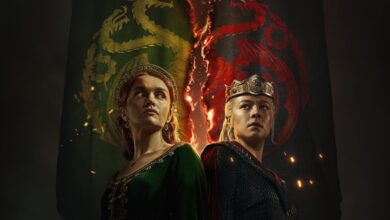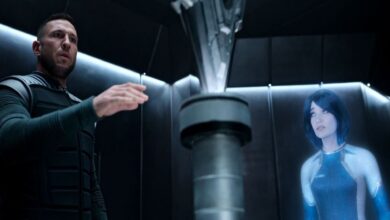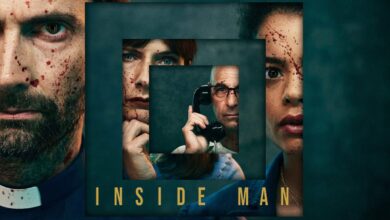Fallout Review: The Nuclear Apocalypse Tv Series Arrives on Amazon Prime Video
Cast: Ella Purnell, Aaron Moten, Kyle MacLachlan, Walton Goggins, Michael Emerson, Matt Berry
Created By: Geneva Robertson-Dworet, Graham Wagner
Streaming Platform: Amazon Prime Video
Filmyhype.com Ratings: 4/5 (four stars)
Fallout is the new Original Prime Video show, a TV series that joins the successful trend of dystopian shows like The Last of Us. There are more differences than similarities between the HBO series and the Prime Video series. Both are taken from successful video game series, but if HBO’s ratings-winning series is convinced from the first episode, Prime Video‘s is not flawless and has profoundly different tones. Amazon Prime Video drops the first ace of the year on April 11th. And he does so by making his new TV series available in its entirety. TV series based on books and video games are becoming increasingly popular and appreciated, thanks to their ability to reinterpret worlds full of fantasy and engaging adventures on the small screen. These productions allow viewers to immerse themselves in stories already appreciated by a transmedia audience, together with the possibility of exploring new narrative territories through an original point of view.
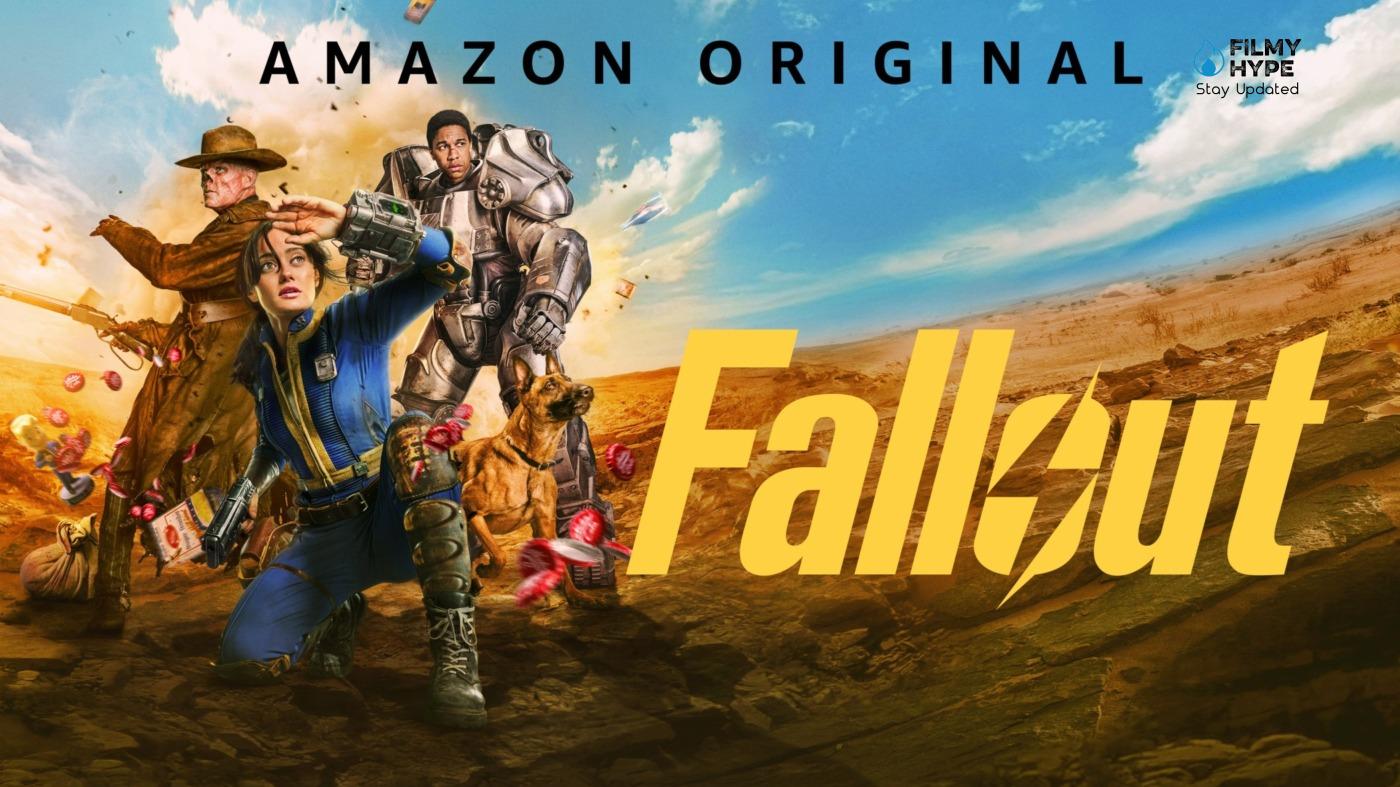
When we talk about products based on books, we are faced with a long tradition of success that has turned successful novels into iconic television shows, albeit with variable results. A striking example is the Rings of Power series, which aroused mixed reactions for the interpretation and staging of some iconic characters from the Silmarillion. On the other hand, TV series based on video games are gaining more and more popularity, bringing to the screen the stories and characters loved by players all over the world, with examples of excellence such as Arcane, taken from the League of Legends universe, or The Witcher itself, which has its roots both in Sapkowski’s literary work and in the work of CD Projekt. And this is where we come to Fallout. Set 219 years after the explosion of the atomic bombs that devastated the world, this story was introduced as canon within the narrative universe of the saga of the same name developed by Bethesda.
Fallout TV Series Review: The Story Plot
It’s not easy to tell you about Fallout without referring to related video games. In case you have no direct experience with the game, it is important to know that the saga, originally developed as an isometric role-playing game, describes a post-apocalyptic world completely transformed by nuclear war. Cities have been razed, the land is poisoned by radiation, and the surviving inhabitants struggle to survive day after day. The ruins of ancient civilizations mix with the retro-futuristic technology of the 1950s, creating an atmosphere as unique as it is intriguing. The world of Fallout is inhabited by a variety of mutant creatures, androids, and rival factions vying for control of what resources remain. Despite the chaos and desolation, the world of Fallout is also characterized by a very over-the-top sense of black humor. Video game protagonists are often solitary figures who venture into the radioactive wasteland in search of adventure, treasure, and answers about what happened to the world. It is precisely within this context that we learn about the three protagonists of the saga: Lucy, Maximus, and the Ghoul.
Both protagonists appear to be looking for a person in possession of a device that could change the fate of Wasteland. The entire series is a journey enriched by moments that will keep viewers in suspense, especially considering that the narrative, in addition to being set in the present, also includes various interesting flashbacks, capable of providing both viewers and gamers with intriguing insights into the past. Throughout the eight episodes, which will be released simultaneously on April 11th on Amazon’s streaming platform, the showrunners have demonstrated the ability to delve into the background of the protagonists with the right narrative methods, and without making one overpower the other, also offering a series of quotes taken directly from video games.
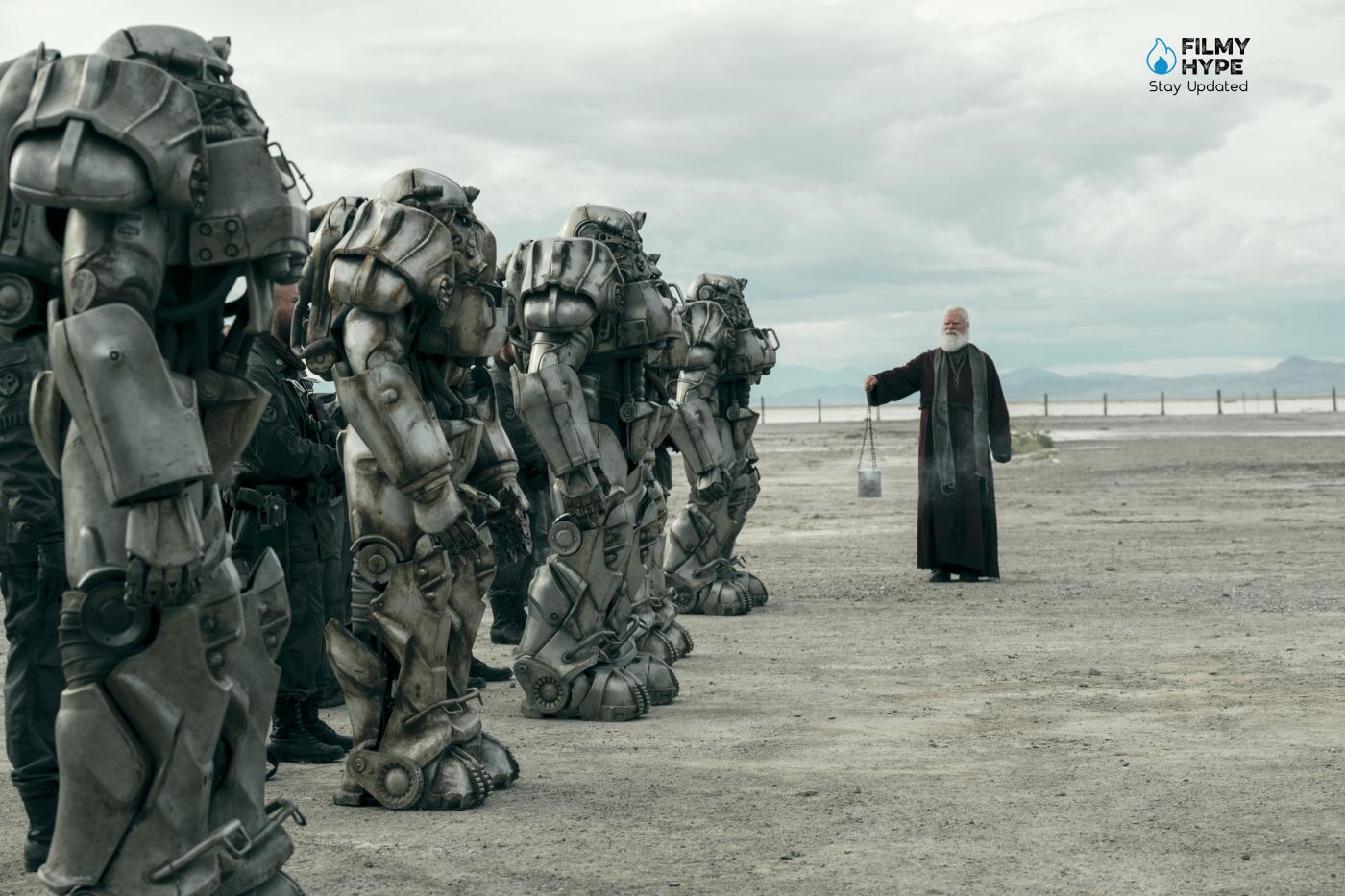
The main challenge in creating a television transposition on the Fallout universe was certainly understanding how to manage the immense canon of video games to correctly translate it into an audiovisual language very different from the video game one. To overcome this problem, Amazon MGM and Kilter have decided to build an original story, unrelated to that of the interactive incarnations of the brand but deeply rooted in its lore, with continuous references to places, events, and narrative constructs that will delight fans of the first hour. Here’s how the Fallout series relates to video games. It is a story with a slightly more limited scope than that of the games but which, thanks to a methodical worldbuilding operation aimed at capturing the attention of veterans as well as neophytes, manages to restore the typical sense of wonder that permeates any iteration of the franchise.
The wonder we are talking about, however, is anything but positive: the future imagined by Fallout is violent, dirty, and torn apart by a nuclear war on a global scale that has wiped out human civilization, causing the last survivors to regress to a feral state. What on paper would be a dark dystopia with oppressive atmospheres, however, is treated with irreverent humor that lightens the general tones without giving up on outlining particularly gruesome situations or enormous explosions of violence. The result is an extravagant mixture of sci-fi, thriller, and horror elements seen through the irreverent lens of the saga’s traditional dark humor and narrated according to different perspectives that proceed in parallel and then intertwine throughout the eight episodes.
Fallout TV Series Review and Analysis
The first episode, the one with the longest running time, is the point of view of Lucy (Ella Purnell), a stubborn and naive inhabitant of the Vaults. The latter, anti-atomic bunkers built deep in the earth, are small self-sufficient societies governed by a democratic system in which our protagonist has spent the entirety of her life learning the history of the planet and pre-war civilization only through books. When the girl finds herself forced to venture outside due to some sad vicissitudes, she will find herself having to deal with a wild world in which the law of violence prevails, which will force her to question all her own beliefs. The second point of view is that of Maximus (Aaron Moten), a recruit of the Brotherhood of Steel (one of the most famous factions present in Fallout lore), a group of zealots always looking for historical artifacts that count among their ranks of powerful warriors caparisoned in leathery steel armor. Where Lucy will find herself dealing with a completely new reality outside the Vault, Maximus’ soul has been tempered by the difficulties of life in the Wasteland and by a past with painful nuances that will gradually reveal itself episode after episode.
It must be said, however, that despite the rather convincing acting performances by both interpreters, we preferred the characterization of the girl, whose noble and pure spirit irremediably clashes with the extreme brutality of the Radioactive Zone, resulting in truly hilarious but also rather dramatic situations. Let’s be clear: the character of Maximus also works, in the long run, but thanks to the not-always-excellent rhythm of the portions of the plot in which he is the protagonist, the spark towards him only arose after a few episodes. And then there is The Ghoul (Walton Goggins) who plays the proverbial role of the lion thanks to excellent writing and the actor’s innate charisma which outlines a character destined to leave his mark in the hearts of anyone who approaches the series. Goggins takes on the role of an undead bounty hunter with a strong gab, enriched by a first-rate character design and a dark sense of humor as well as an amazing hair and makeup operation that ends up transfiguring his somatic features.
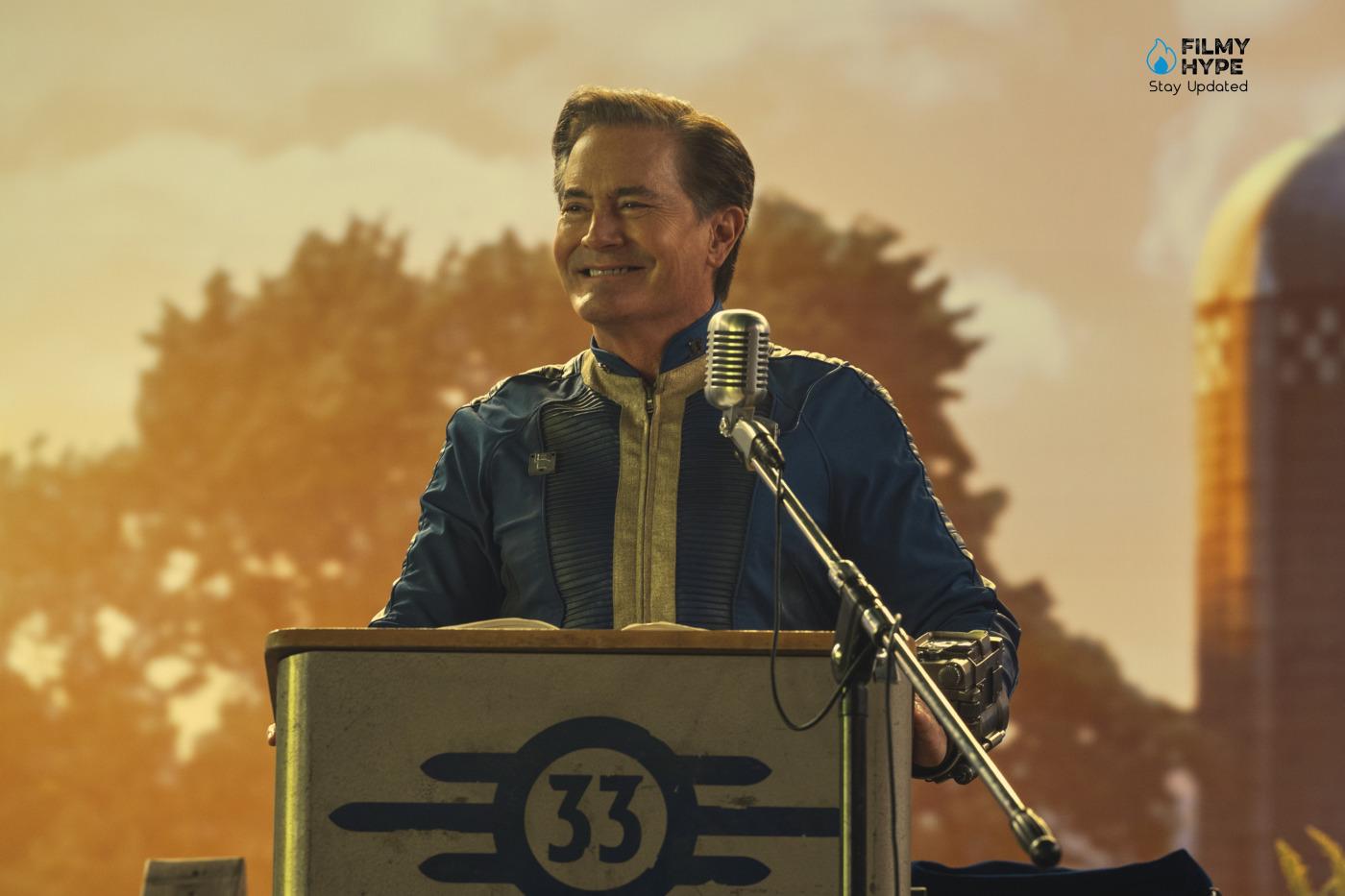
In the periods in which The Ghoul steals the show from the other protagonists, the series takes on the characteristics of a fully-fledged fantasy western, complete with heart-pounding action scenes and sharp exchanges with the supporting characters, in an interpretation that has managed to convince us from the very first appearance. For the rest, it is a story of human beings in a world that has forgotten humanity, in which the atrocities of which man is capable end up overshadowing even the tragedy of nuclear war and in which people appear at least as threatening as the monstrous mutated radiation creatures that infest every corner of the planet. Furthermore, this transposition of Fallout certainly has the merit of inheriting the particular uchronic aspect of the works of Interplay and Bethesda Softworks, at the same time pressing the accelerator on themes and ideas that in videogame chapters were often relegated to the emerging narrative. If we were to look for a flaw in the narrative, we would point to an editing that is perhaps a little too fragmented which in an attempt to symmetrically carry forward the subplots of the various supporting characters ends up slightly diluting the pace of the action, especially in some situations.
We close our examination with some considerations on the technical aspect of the series, starting from the direction. The latter, entrusted for the first three episodes to Jonathan Nolan himself (who had already tried his hand at this role for some episodes of Person of Interest and Westworld) and then to other filmmakers active in the world of television, among which Clare Kilner (House of the Dragon, Gen V) and the prolific Frederick EO Toye. The direction, although not offering moments of particular creative flair, manages to correctly emphasize both the more dialogic parts and the purely action ones with overall appreciable results. Small note of color on the sidelines: in the episodes directed by the youngest of the Nolan brothers it is possible to notice some tasty references to the works of Oscar winner Christopher, including a clear reference to a legendary scene coming directly from the second chapter of the Dark Knight trilogy. The sets, however, are excellent and reveal the allocation of a large budget for the production of the series. Thanks also to the use of a series of well-made special and visual effects, the settings, fantastic creatures, and props help to bring the Fallout universe to life with all its explosive personality. The Vaults and the other scenarios are created with great detail but also the bestiary, which includes well-known monsters such as Gulpers, Cockroaches, and Radioactive Bears, can boast a very respectable level of care. Finally, the music is excellent and, just like its videogame counterparts, comes from the American blues and swing scene of the 40s and 50s with songs licensed by famous composers such as Bing Crosby, The Andrews Sisters, and Jack Shaindlin.
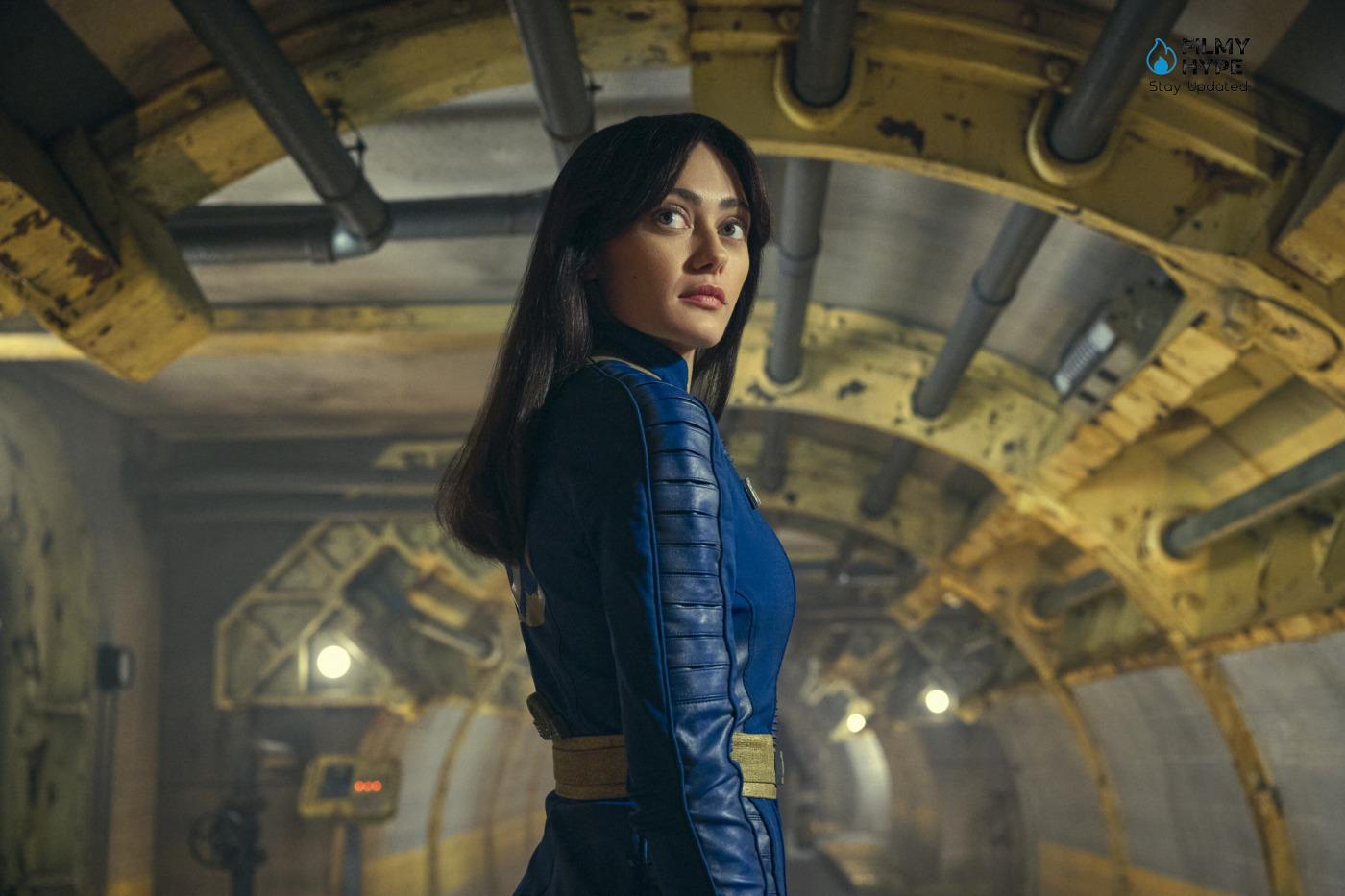
At this point, many video game fans may be wondering how the series can effectively integrate into the Fallout universe. And above all, whether it is worth watching to enrich the lore of a franchise that has sparked much debate among fans (and many rather in-depth wikis). The writers of the series have demonstrated an excellent understanding of the Fallout universe. The creation of the Vaults, to give you an example, faithfully reflects what is seen in video games and even manages to further expand the reasons for their construction. Perhaps for the first time, actively at least, we can understand Vault-Tec’s point of view, showing how they created most of these bunkers to conduct experiments on the population that lived there.
We have already discussed the flashbacks that the series offers, which take us back to the period before the war. It is precisely in these scenes that fans could appreciate the series most, since it allows us to observe a new perspective on a historical period never explored in games, except some documentation or stories. Vaults 33 and 4, mentioned in promotional materials released by Amazon, are sure to provide moments of deep reflection, especially when their role in the plot is revealed. However, to avoid spoilers, we prefer not to add further details. A noticeable feature in the trailer is the protagonists’ visit to the ruins of Shady Sands, an extremely famous location in the Fallout franchise, present in the first chapters and also mentioned in Fallout 3 and Fallout: New Vegas. The series will allow us to explore fascinating backstories on the founding of Shady Sands and the events that led to the destruction of the capital of the New Republic of California.
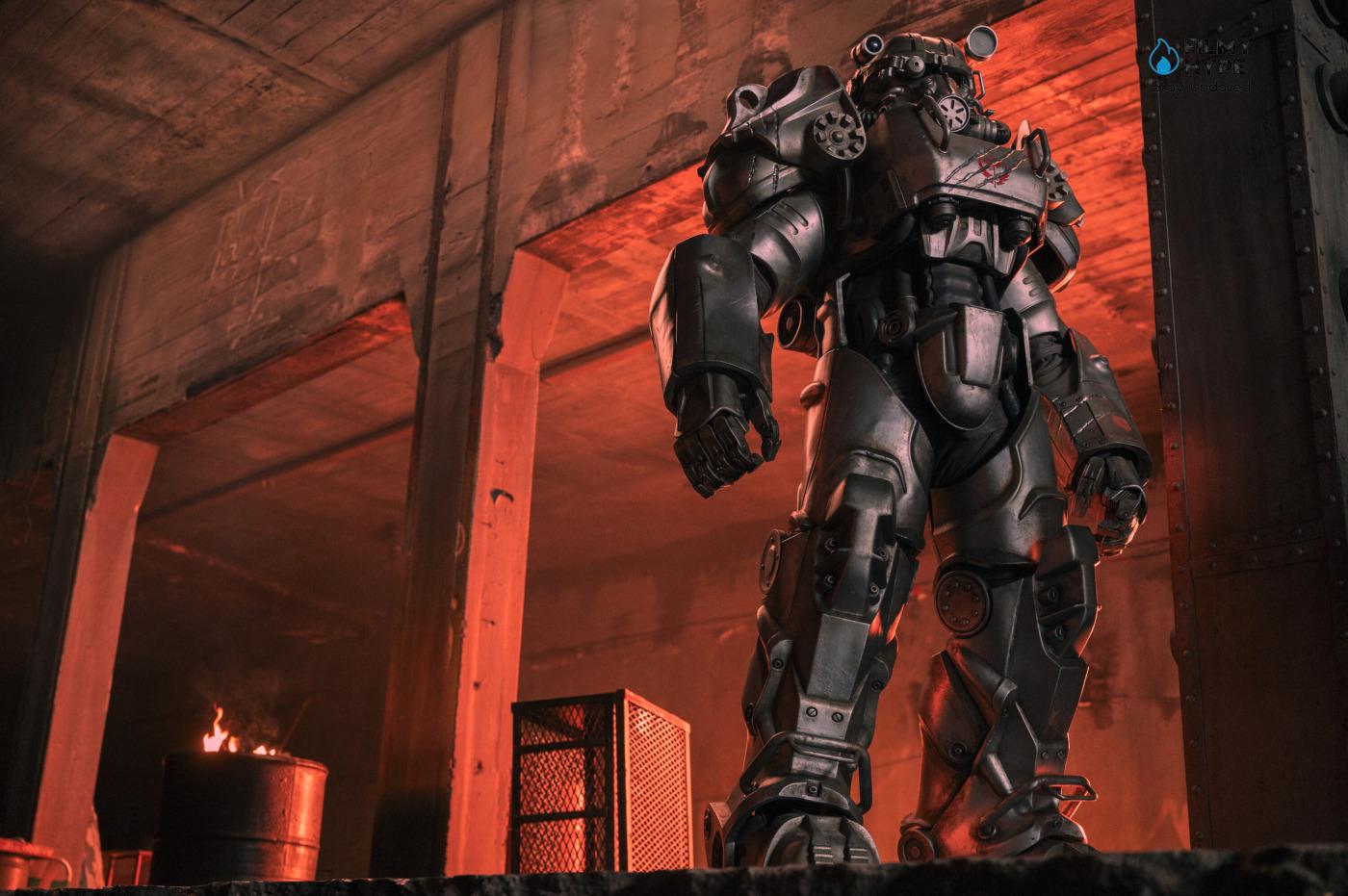
The factions were accurately represented, considering the time limitations due to the running time of the series and the number of episodes available. It was clear that detailed insights into the hierarchy and structure of the Brotherhood of Steel could not be provided, nor could references to the Master’s Army or the Rippers (despite their presence in New California) be included. The series rightly focuses on Vault-Tec and the Brotherhood, offering adequate insights without going overboard, to avoid creating overly expository episodes that could be boring. Unlike the protagonists of the series, fans of the video game will probably wonder why the T-60’s Fusion Core maintains such a prolonged lifespan. The presence of numerous quotes taken directly from the video game is evident, such as the hacking of devices, the weapons, and the clothing of the characters, all faithfully reproduced as seen in Bethesda products.
It’s a shame that some mention of SPAV is missing, just as it’s a shame that there aren’t any insights into the whole set of substances present in the game world, such as Stimpacks or drugs like Jet (which are used, but without explanations or anything else). The brackets dedicated to ghouls are fun, as they are explored and explored more than other creatures. However, as already mentioned, this choice can be a bit disappointing considering the variety of creatures present in the Fallout universe, just think of the Deathclaws but also the Super Mutants, for example, of which we would have liked to see a greater representation in the episodes of the series. Perhaps with a series of this magnitude, something more could certainly have been done, but these eight episodes have proven to be the right, fantastic, appetizer that does nothing but make us want to see the next evolution (and from the premises, we sincerely hope so). The actors on stage were well coordinated, thus creating a show capable of enthralling even those who didn’t know the world of Fallout at all.
Parent Guide: the TV series is not recommended for an audience of children and is not suitable for viewing with the whole family. Due to its tone, language, and violent scenes, the show is recommended exclusively for an audience of mature people capable of fully understanding the events that the story is going to tell.
Fallout TV Series Review: The Last Words
Ultimately, we can promote the first season of Fallout without any particular reservations. The project exudes the passion of the screenwriters and all the other figures involved in the development. It is enriched by the excellent performances of the cast, among which Walton Goggins stands out in a stratospheric state of form. Fallout by Amazon MGM and Kilter Films therefore continues the streak of positive results that lately characterizes serial transpositions of video games with a first season that convinces, amazes, and paves the way for an even brighter future, if possible, for the Bethesda Softworks franchise. The Wastelands await you.
https://www.youtube.com/watch?v=V-mugKDQDlg&ab_channel=PrimeVideo



